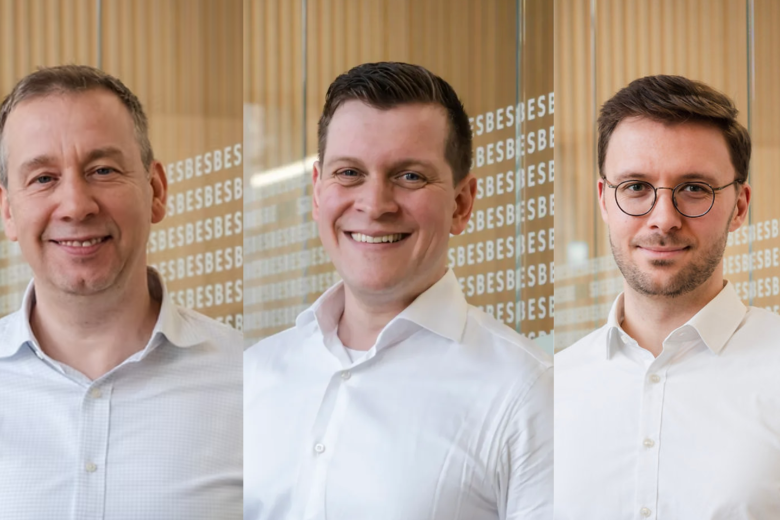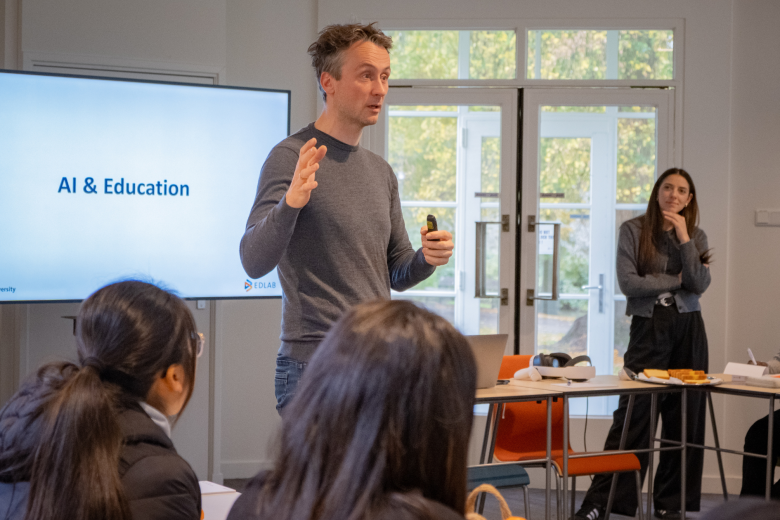Sustainable Futures in the Making
The world is facing challenges that demand urgent and comprehensive action. These grand challenges require us to rethink how we address long-term societal impacts. As these challenges intensify, there is a growing recognition that our ability to anticipate, prepare for, and shape future outcomes is critical for creating sustainable and just societies. This requires future-oriented thinking that considers how our actions today impact the future of our world. Therefore, my PhD thesis explores these themes by questioning: “How do organisations and individuals assess, navigate, and shape potential desirable futures?”
Thesis Project: Making Desirable Futures
In organisational studies, there has been a recent shift toward seeing organisational futuring not just as predicting and forecasting the future but as actively engaging with it through day-to-day practices. Future-making refers to the ways in which actors produce and enact futures (Wenzel et al., 2020). This means that organisations engage with the future beyond merely trying to predict it; rather, in their normal everyday activities, ideas about the future shape actions in the present. For example, organisations may consider the future of climate change in their everyday processes, which then affects the courses of action they see as probable, possible, or preferable.
This idea embraces the fact that the future is not a fixed, objective ‘thing’ to be quantified or uncovered, but rather a multifaceted, dynamic, and open-ended aspect of organisational life that encompasses a multitude of horizons and possibilities (Wenzel et al., 2020). In other words, there is not a future, but rather futures. Thus, future-making involves the dynamic interplay of organisational goals, societal expectations, and emerging trends, allowing organisations to anticipate and prepare for multiple potential futures (Beckert, 2013). In this way, future-making is not merely about predicting the future but actively shaping it in alignment with broader societal goals (Gümüsay & Reinecke, 2022).
My research explores future-making in two different contexts: impact investing and entrepreneurship. Amid growing global challenges, entrepreneurs are increasingly developing impact-driven ventures and mobilising resources to tackle environmental, social, and economic challenges of the future (George et al., 2019). At the same time, the landscape of investing has shifted toward sustainability and impact, recognising the role that capital allocation plays in addressing the world’s most pressing environmental and social challenges (Daggers & Nicholls, 2016; Logue & Grimes, 2022). While traditional investment practices have primarily centered on assessing future financial risks and returns, the emerging field of impact investing includes the added complexity of assessing potential social or environmental impacts, as investors attempt to achieve their desired visions for the future by investing in social entrepreneurs. Therefore, both contexts—impact investing and social entrepreneurship—provide intriguing settings to study how individuals and organisations enact their desirable futures, as actors in these fields are actively trying to understand how actions today impact the future world.
Utopian-Dystopian Imaginaries
One paper related to this thesis project explores the interplay of utopian (i.e., the most desirable future) and dystopian (i.e., the least desirable future) imaginaries. We interviewed blockchain-for-good entrepreneurs about how they envision the optimal scenario, the worst-case scenario, and their predictions for their future. We used a methodology from Futures studies, Textor’s (1980) Ethnographic Future Research approach, to explore these imaginaries and examine how they shape collective identities in emerging entrepreneurial fields.
The findings reveal that utopian and dystopian imaginaries often exist in a dynamic, intertwined relationship — what one entrepreneur sees as an ideal scenario or ‘utopia’ may represent a troubling vision or ‘dystopia’ to another. This dialectic is significant because it reflects not only contrasting visions but also the competing values and motivations within the field. This means that even though different actors may share a desire for a sustainable future, their ideas about how to achieve this future can differ drastically.
Thanks to the Morse Travel Grant, I was able to visit the University of Technology and the TD School to present my paper on utopian-dystopian imaginaries, as well as my entire thesis project, and receive valuable feedback. The TD School has adopted a transdisciplinary approach to its research and education, rooted in the necessity of multiple ways of knowing and the exploration of novel approaches that illuminate possibilities for the future. Engaging with transdisciplinarity has also greatly benefitted my research.
Greetings for Australia!
References
Beckert, J. (2013). Imagined futures: Fictional expectations in the economy. Theory and Society, 42(3), 219–240. https://doi.org/10.1007/s11186-013-9191-2
Daggers, J., & Nicholls, A. (2016). Academic research into social investment and impact investing: The status quo and future research. In C. Carter (Ed.), Routledge Handbook of Social and Sustainable Finance (pp. 61-73). Oxford, UK: Routledge.
George, G., Merrill, R. K., & Schillebeeckx, S. J. D. (2019). Digital sustainability and entrepreneurship: How digital innovations are helping tackle climate change and sustainable development. Entrepreneurship Theory and Practice, 1–28. https://doi.org/10.1177/1042258719899425
Gümüsay, A. A., & Reinecke, J. (2022). Researching for desirable futures: From real utopias to imagining alternatives. Journal of Management Studies, 59(1), 236–242. https://doi.org/10.1111/joms.12709
Logue, D., & Grimes, M. (2022). Living up to the hype: How new ventures manage the resource and liability of future-oriented visions within the nascent market of impact investing. Academy of Management Journal, 65, 1055–1082. https://doi.org/10.5465/AMJ.2020.1583
Textor, R. B. (1980). A handbook on ethnographic futures research. Stanford.
Wenzel, M., Krämer, H., Koch, J., & Reckwitz, A. (2020). Future and organization studies: On the rediscovery of a problematic temporal category in organizations. Organization Studies, 41(11), 1441–1455. https://doi.org/10.1177/0170840620912977
Also read
-
Teacher Information Points at UM
UM faculties now host Teacher Information Points (TIPs) that offer local, “just-in-time” and on-demand support for teaching staff. The aim is simple: to provide help that is closely connected to day-to-day teaching practice.

-
Shaping the future of marketing: SBE scholars at the forefront of research and teaching
Three faculty members from SBE’s Department of Marketing & Supply Chain Management, Prof. Dr. Dominik Mahr, Dr. Jonas Heller, and Dr. Tim Hilken, combine cutting-edge research with innovative teaching and mentorship. From exploring the societal implications of digitalisation in courses such as...

-
UWC Maastricht students get a taste of education innovation at EDLAB
On 21 October 2025, EDLAB hosted students from United World College Maastricht for the second year in a row, as part of their Youth Social Entrepreneurship programme.
